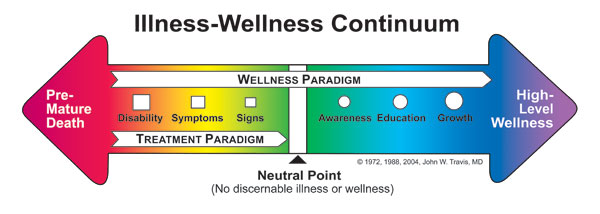
Disclaimer: The information in this article should not be considered legal advice nor does it serve as a proficient interpretation of the law.
Trust us when we say that this topic confuses everyone, from doctors to health coaches, nutritionists, and the public. That’s because there’s nuance to the laws which are rapidly changing, and the roles of health coaches and nutritionists are becoming increasingly recognized and valued.
Let’s break down the differences between a health coach, nutritionist, and a registered dietitian.
What Is a Health Coach?
Health Coaches are behavior change specialists who support people to make sustainable diet, lifestyle, and habit changes that are self-determined by the client—or in some circumstances as prescribed by the client’s professional (licensed) healthcare team—to promote health and greater well-being.
Health Coaches Can:
- Share non-medical information and education
- Assist clients in taking incremental, behavioral steps that enable them to succeed in their personal vision of greater health and wellness
- Provide support to healthy individuals, or groups, regarding general health and wellness information that would apply to everyone*
*The Council for Holistic Health Educators says, “If it can be found in a book, journal, or website, then it can be said to apply to everyone.
Coaching is a growth-promoting relationship that helps people leverage autonomous motivation to achieve personally-relevant changes in their lives. We, as health coaches, help clients optimize their health and well-being by enhancing their resourcefulness, self-regulation, and self-motivation as they navigate the journey of change.
Health Coaches Do Not:
- Interpret lab results
- Tell clients which specific nutrients or foods they need to reach their goals
- Prescribe diets that are personalized to help treat, reverse, or even prevent medical conditions
“Coaches first look to collaborate and partner rather than showing up as experts who primarily analyze problems, give advice, prescribe solutions, recommend goals…” – Coaching Psychology Manual, Margaret Moore
Learn more in this previous article, Can a Health Coach Give Nutrition Advice?
Health Coaching Regulation and Standardization:
The Health Coach title is widely unregulated in the US and Canada—and less regulated around the world—but it is becoming increasingly standardized. National and international certification bodies have defined criteria to meet in order to effectively qualify and train a health coach. The Primal Health Coach Institute is an accredited school that meets nationally recognized education criteria in our Level 2 PHCI certification program.
Health Coaching services are not yet covered by insurance, although important work is underway to incorporate health coaching into a collaborative care model with licensed professionals in a clinical health care setting.
Currently, in the US, 19 states require a license to practice or provide nutrition advice—and health coaches are typically certified but never licensed. See the end of this article for more information regarding state laws.
What Is a Nutritionist?
National Board Certified Nutritionists (CNSs) are highly-qualified nutrition professionals who complete advanced degrees in formal nutrition education, clinical nutrition sciences and health, and fulfill lengthy supervised internships plus a standardized board credentialing exam followed by continuing education. CNSs are trained in a more holistic model (compared to Dietitians) to look for the root cause of disease and practice preventative care.
Certified Nutrition Specialists (CNSs) Can*:
*Depending on State Legislation
- Provide tailored nutrition prescriptions and supplement protocols
- Interpret and analyze lab results in relation to nutrition-related conditions and imbalances
- Formulate personalized meal plans to address underlying deficiencies and imbalances in one’s body
- Prescribe personalized diets for the reversal of chronic disease
- Formulate nutrition plans for public health initiatives or the population at large (although this is a more common for dietitians)
Nutritionist Regulation and Standardization:
The Nutritionist title is widely unregulated in the US and internationally, however, much higher regulations have been implemented in comparison to health coaching regulations.
Note: In many states, Health Coaches cannot call themselves Nutritionists without meeting the applicable laws or requirements to qualify as a nutrition professional.
What Is a Dietitian (RD, RDN)?
Registered Dietitians (aka Registered Dietitian Nutritionists) are highly-trained and regulated nutrition professionals with protected, federally recognized licensing/titles. The RD credential confirms their specialization in “dietetics” which is the art and science of applying food and nutrition principles to health. RDs complete extensive education in clinical nutrition sciences and health including a bachelor’s degree from a regionally accredited institution, plus 6-12 month dietetics internships, standardized national credentialing exams, and continuing education.
Often distinguished by a focus on conventional medical nutrition and public health guidelines, RDNs are trained for acute care and hospital settings, including feeding tube nutrition (whereas CNSs are not), and they can help individuals and the population at large to evaluate and improve nutritional status, practice food service safety, and implement strict health organization guidelines.
Registered Dietitians Can:
- Do everything a Certified Nutritionist Specialist can do, and more*.
Registered Dietitian Regulation and Standardization:
Every Registered Dietitian is a Nutritionist, but most Nutritionists are not Registered Dietitians. Furthermore, all state laws will recognize RDs, but not all states will recognize CNSs. At this time, 13 states allow only RDNs to use the term Nutritionist.
Where Do Health Coaches Fit Into the Bigger Picture?
The conventional healthcare model was designed to treat illness, injuries, and disease, but this disease-treatment paradigm isn’t enough to help people develop and sustain lifelong health-promoting behaviors. In 1975, Dr. John Travis published The Illness-Wellness Continuum model which is now a widely-recognized concept that illustrates the many degrees of wellness.
The left side represents the medical treatment paradigm that can save someone from death, disability, and treat signs and symptoms—a paradigm designed for physicians, clinicians, dietitians, and licensed nutritionists—however, the treatment paradigm will only get someone to neutral (the center point).
Travis’ model emphasizes that being free of disease does not indicate wellness, and one must progress from left to right via the wellness paradigm in order to increase overall well-being, personal growth, and life satisfaction. It’s along the wellness paradigm that health coaches can really shine.
People want to be well, but there’s an enormous gap between that and everyday reality. New life skills are needed to create a personal blueprint for well-being, and to believe in one’s own ability to take charge of their health and implement the necessary changes.
Health coaches bridge the gap—helping people take an active role in their health while also helping healthcare providers who are short on time and training to support patients in a whole-person approach and transformative self-care.
Collaborative Care
6 in 10 Americans are living with chronic disease, and most chronic diseases are preventable by eating well, avoiding smoking and drinking, engaging in regular physical activity and routine health screenings. Yet, fewer than 5% of the population engage in all 5 of these top health-promoting behaviors. Even when a patient’s health is suffering, they have trouble implementing health-promoting changes in their daily life.
As expressed by Functional Medicine practitioner Chris Kresser in his book Unconventional Medicine,
“We desperately need properly trained health coaches…I know from training thousands of healthcare professionals that lack of compliance is an extremely common problem…The support of a health coach can make the difference between success and failure in implementing long-term diet, lifestyle, and behavior changes. So, there’s no question in my mind that health coaches will play a crucial role in reversing the chronic disease epidemic.”
Kresser’s vision of a collaborative practice model links many different providers—clinicians, nurses, dietitians, nutritionists, health coaches, psychologists, etc.—into an integrated team that maximizes practitioner roles in service of the patient.
U.S. Legislation “Scope of Practice” for Health Coaches
PHCI is a supporting member of The Council of Holistic Health Educators (CHHE)—the only 501(c)(4) nonprofit association with a mission to serve holistic educators, students, and practitioners as an advocate and resource to understand law and policy regarding holistic health. CHHE acknowledges that,
“Nutrition practice laws can be really confusing when it differs from state to state….Nineteen states require a license to practice nutrition, and the law defines a scope of practice—exclusive privileges reserved only for those who hold a license.
The main elements of such licensure laws is that the state REQUIRES that you meet very specific criteria in order to be granted the exclusive right to practice nutrition…The requirements to become licensed, and thus take advantage of the exclusive privileges of licensure, are almost always limited for just dietitians.“
State by State nutrition laws in the US can be found here. Dive deeper into understanding your state laws with CHHE’s free 1-on-1 support when you are a student/alumni of The Primal Health Coach Institute.
Every health professional plays an important role in healthcare and self-care reform in many countries, and certified health coaches are just beginning to experience the variety of ways our skills can be put to use for the greater good.




